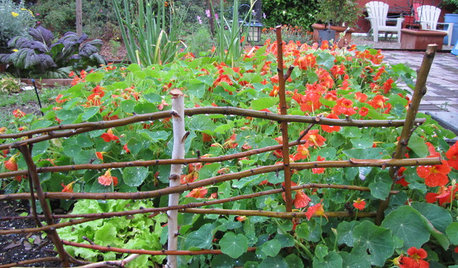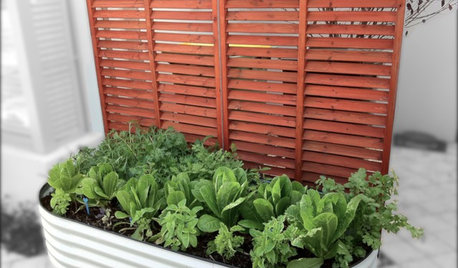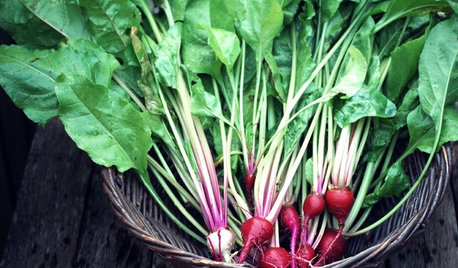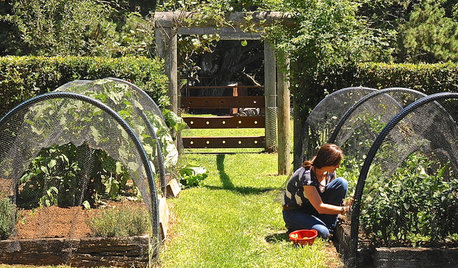banning herbs?
Liz_Defiance
20 years ago
Related Stories

GARDENING GUIDES6 Gift-Giving Gardens for Delights Beyond the Visual
Grow your own natural dyes, snip herbs for home brews and more ... these creative gardens have benefits beyond beauty alone
Full Story
FEEL-GOOD HOME21 Ways to Waste Less at Home
Whether it's herbs rotting in the fridge or clothes that never get worn, most of us waste too much. Here are ways to make a change
Full Story
EDIBLE GARDENS8 Last-Minute Additions to a Summer Edible Garden
It’s not too late to get these vegetables and herbs planted for a bountiful harvest this year
Full Story
GARDENING GUIDESVegetables and Flowers Mix in Beautiful Edible Gardens
Ornamentals, meet your edible garden mates. We know you'll get along just beautifully
Full Story
FARM YOUR YARDHouzz Call: Home Farmers, Show Us Your Edible Gardens
We want to see where your tomatoes, summer squashes and beautiful berries are growing this summer
Full Story
FRONT YARD IDEASWelcome Edibles Into the Front Yard for Fresh Food and More
Give your front yard design a boost and maybe even make new friends by growing fruits and vegetables
Full Story
LANDSCAPE DESIGN15 Great Ideas for a Lawn-Free Yard
End the turf war for good with hardscaping, native grasses and ground covers that save water and are easier to maintain
Full Story
FEEL-GOOD HOME10 Ways to Fight Pollen at Home
Keep sneezing and stuffiness to a minimum by making your house as pollen free as possible
Full Story
DECLUTTERINGFoolproof Ways to Declutter Your Kitchen
If you find yourself fumbling through cupboards to find what you’re looking for, it’s time to take action with these simple steps
Full Story
GARDENING AND LANDSCAPINGShow Us Your Garden Retreat
Where do you go to get away from it all and unwind in your yard?
Full StoryMore Discussions






Rosa
herbalbetty
Related Professionals
Citrus Heights Landscape Architects & Landscape Designers · Accokeek Landscape Architects & Landscape Designers · Palm Springs Landscape Architects & Landscape Designers · Gainesville Landscape Contractors · McKinney Landscape Contractors · Arlington Landscape Contractors · Brownsville Landscape Contractors · Cockeysville Landscape Contractors · Essex Landscape Contractors · Merced Landscape Contractors · National City Landscape Contractors · Parker Landscape Contractors · Vineyard Landscape Contractors · Waltham Carpenters · Whitney Carpentersscryn
herbalbetty
scryn
DigginDanny
cornelius
ltcollins1949
Heathen1
Judy_B_ON
shona
crankyoldman
rusty_blackhaw
crankyoldman
rusty_blackhaw
crankyoldman
rusty_blackhaw
johnyb
rusty_blackhaw
johnyb
vixenmoon
rusty_blackhaw
Heathen1
Heathen1
johnyb
vixenmoon
crankyoldman
rusty_blackhaw
crankyoldman
johnyb
rusty_blackhaw
KCCAT
rusty_blackhaw
KCCAT
rusty_blackhaw
KCCAT
rusty_blackhaw
KCCAT
rusty_blackhaw
johnyb
rusty_blackhaw
johnyb
rusty_blackhaw
johnyb
rusty_blackhaw
tkbiogardener
divinesage24
rusty_blackhaw
frogmorehami
Heathen1